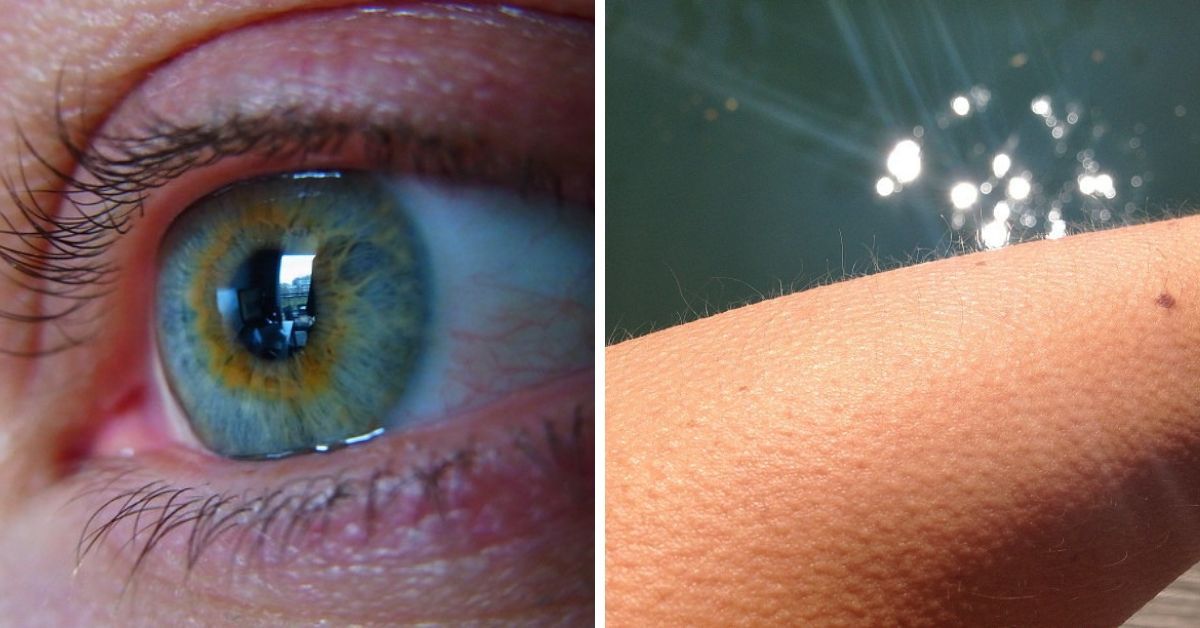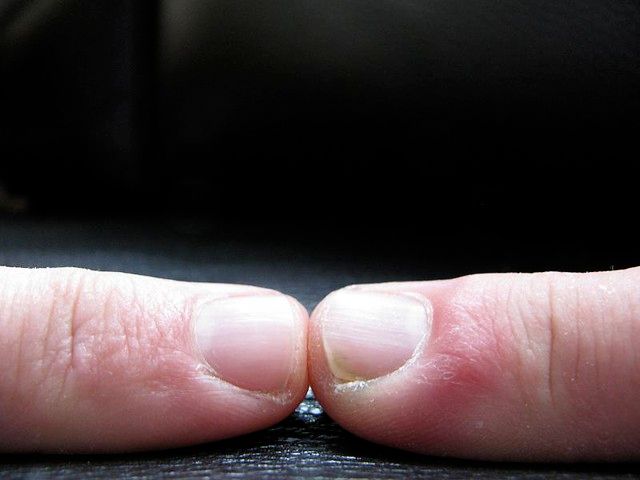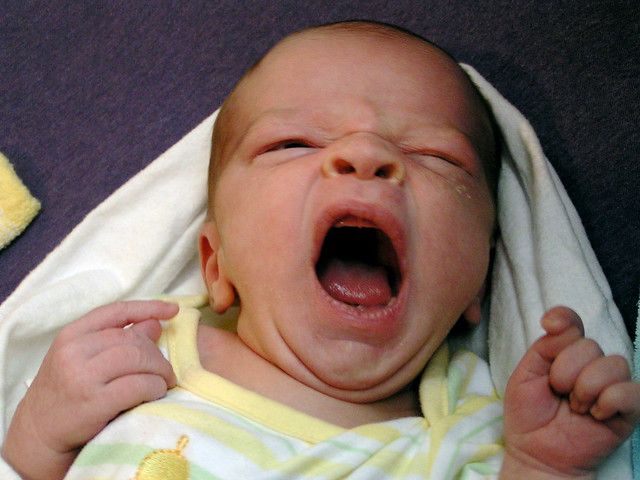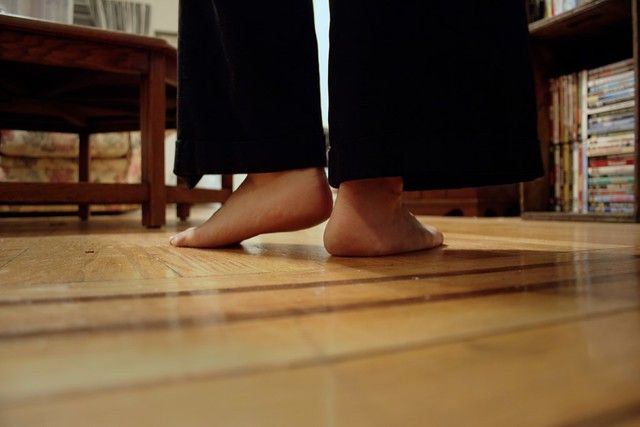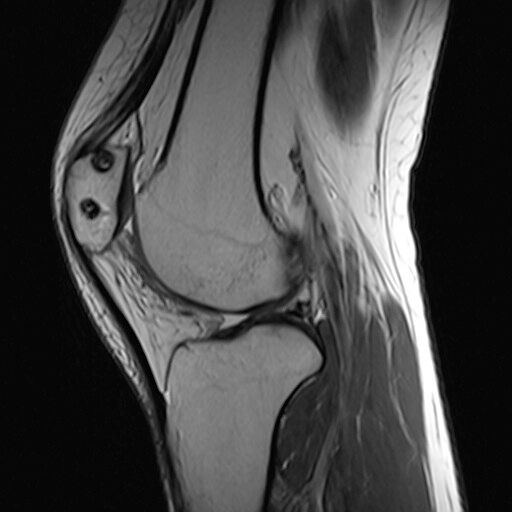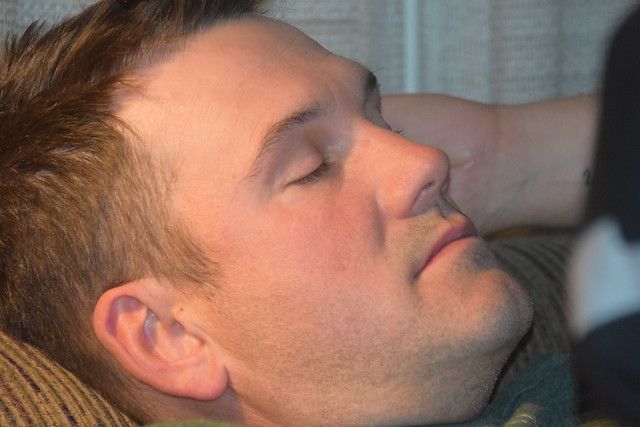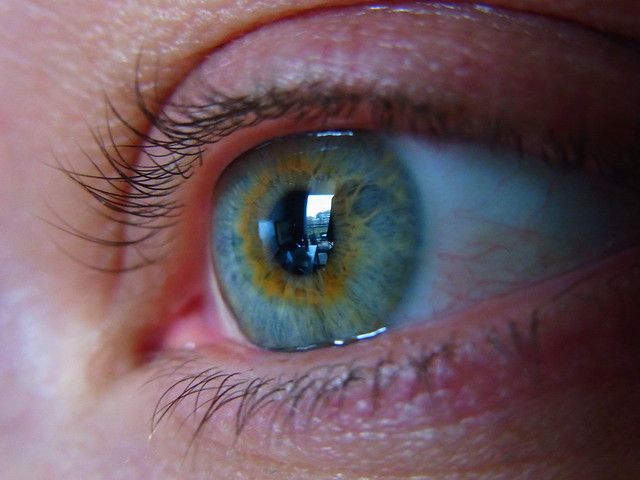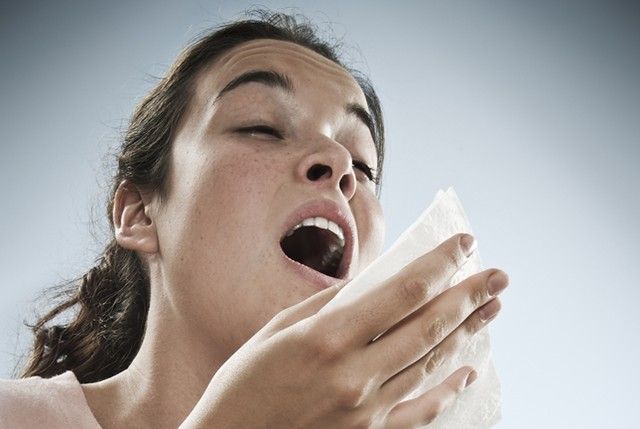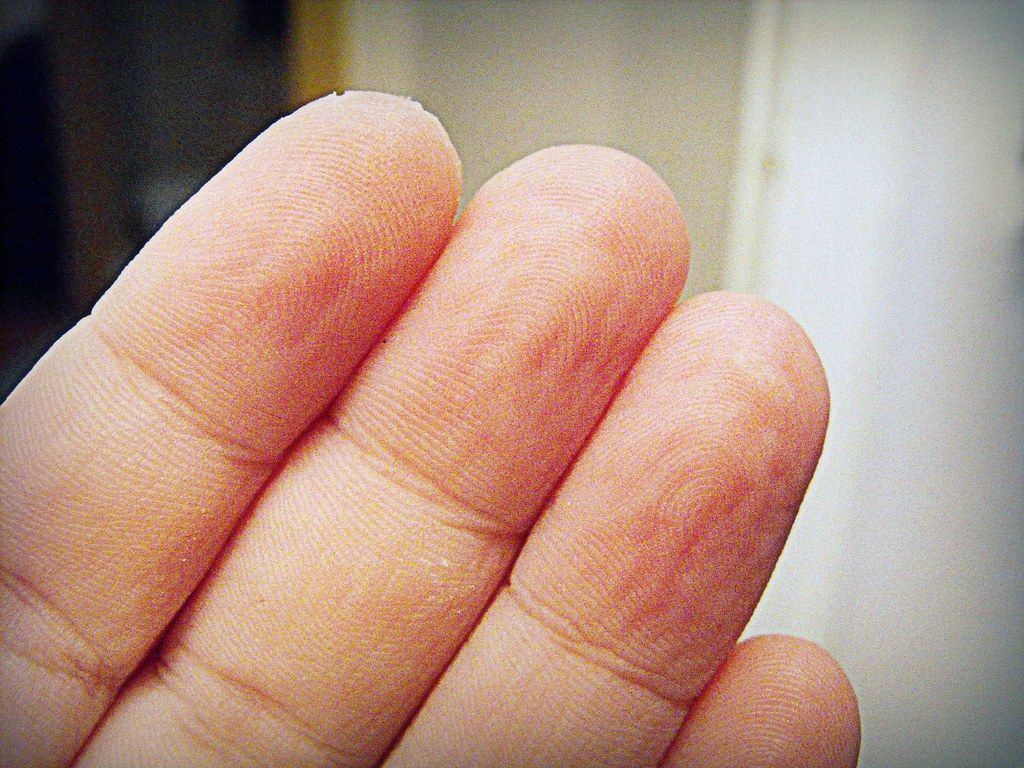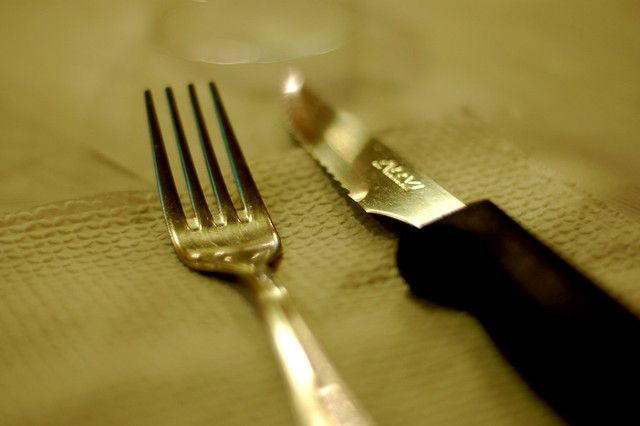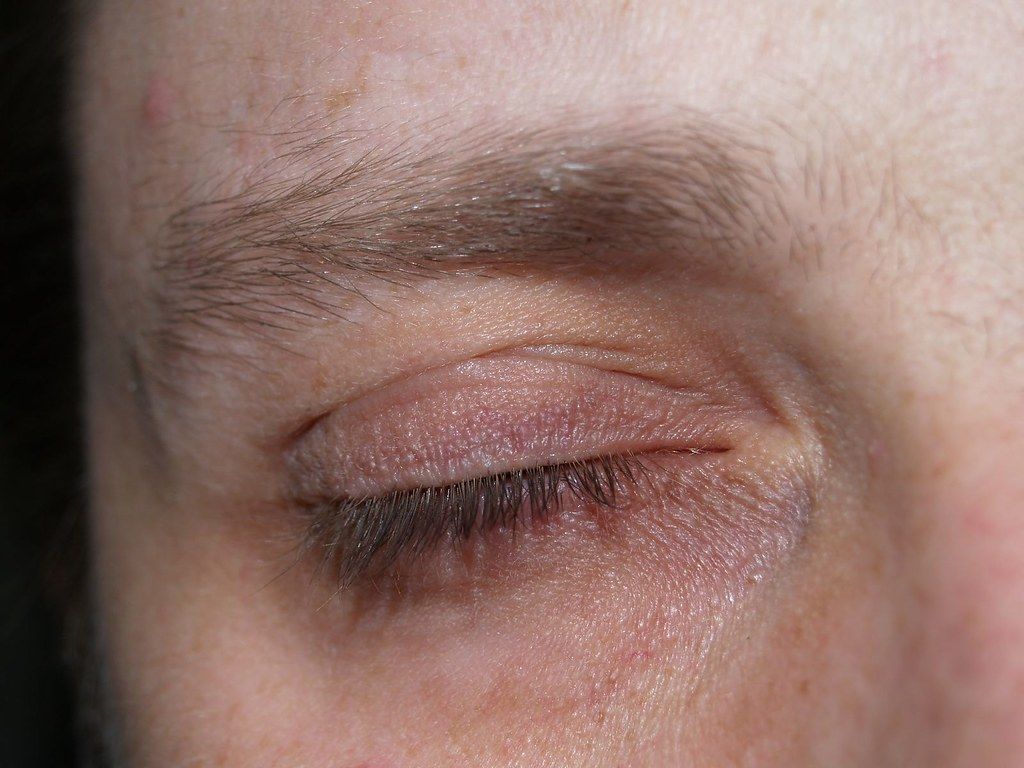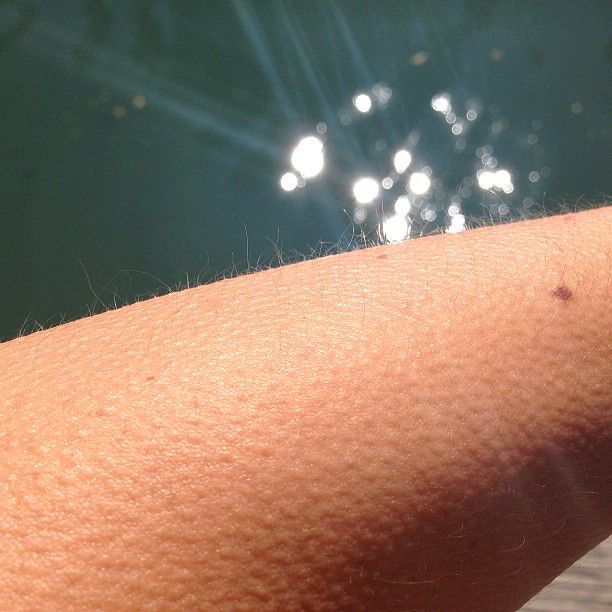Our bodies are pretty quirky. We can't even being to fathom all the stuff that goes on inside it, but we like to think we have a pretty good grasp on what it does. However, there are a lot of strange bodily reactions that we don't know the cause of, even though these things happen to us sometimes on a daily basis.
1. Nails Falling Off After Injury
Have you ever stubbed your toe really hard, or had something fall on your toe only for the nail to fall off later? It's pretty gruesome when you think about it, but what exactly causes that entire nail to come off?
When you stub your toe or jam your finger, you could end up with what's called a "subungual hematoma," which mean blood collects under the nail. This is what causes it to look black or purple. If the blood collection gets to be too much, your nail may separate from the nail bed, which causes it to fall off.
2. Crying When You Yawn
We've all yawned so hard that our eyes start to water. In fact, it can be pretty awkward if you're in a public space and it looks like you're tearing up over something emotional. Although, pretnding to yawn when you're starting to tear up over something real can be a pretty good cover.
So why the tears?
There are always tears that coat your eyes keeping them wet, and when the build fluid builds up, it gets drained into little openings in the corners of your eyes. But, when you yawn, these little openings can get blocked because of the way your muscles contract, and the fluid has nowhere else to go but down your cheeks!
3. Feet Falling Asleep
The sensation of your foot falling asleep can be both strange and painful. At first it feels numb, then it feels like pins and needles, and then it hurts when it starts to "wake up" again. When you sit on your foot (or even sleep on your arm in the wrong position,) you're putting pressure on the nerves, which in turn can slow down the blood flow to your limb.
People who are thinner tend to experience this more frequently because they don't carry as much fat, which can cushion the blood vessels and prevent them from losing blood flow while you sit or sleep on the limb.
4. Joints Cracking After Sitting
Every time my dad used to stand up, you could hear his knees crack. I thought it was so strange because it's not like he had been doing anything to aggravate them. When I was a kid, I thought it was the sound of the bones breaking. Obviously, I was wrong.
When your joints snap or crack, it's the release of gas from the space between your joints. The cracking sounds aren't anything to be alarmed about, unless you also feel pain or experience swelling.
“We say motion is lotion: the more you move, the more your body lubricates itself,” says Kim L. Stearns, MD, an orthopedic surgeon at Lutheran Hospital in Ohio. “When you’ve been sitting or lying around, fluid in the joints doesn’t move. The more active you are, the more your joints lubricate themselves.”
5. Body Jerking Before You Fall Asleep
I don't know about you, but I experience this every night! When I'm lying in bed and about to drift off, I suddenly jerk awake and feel like I'm falling. Research hasn't really been able to find a true reason behind this sensation, but there are some scientific theories that make sense.
One theory is that when your body starts to relax and your heart rate and breathing start to slow down, your body's method of transitioning is to twitch. Another theory is that your brain is using its fight or flight response. As your muscles relax, the brain thinks you're actually falling, and sends a message to your muscles to tense up, causing a jerk.
6. Seeing Spots After Camera Flashes
We've all fallen victim to an unexpected bright camera flash that leaves you blinking like mad and seeing floating lights or spots. Your brain produces images through signals sent from the photoreceptors at the back of your eyes, and camera flashes can put these photoreceptors into high gear.
“When a camera flash goes off, it’s so bright that it’s overstimulating the photoreceptors,” says Elaine Icban, assistant professor of clinical optometry at the New England College of Optometry. “It takes awhile for those photoreceptors to get back to normal so the eyes see the afterimage of that flash.”
7. Feeling Butterflies In Your Stomach On A Rollercoaster
The drop on a rollercoaster provides an unmistakeable feeling of your stomach landing in your throat. Obviously, that's not actually happening, but there is some movement going on. The sudden drop can cause some of the more loosely connected organs to shift and move, and one of those organs is your stomach. Your nerves sense this movement and overcompensate a bit. Even though it's only moved a bit, it feels like your stomach has jumped into your throat.
8. Moles Growing Thick, Long Hair
These hairs may be unsightly, but they're nothing to worry about. Moles are concentrated clusters of cells that produce pigment in the skin, and sometimes they can end up forming on top of a hair follicle. Because there is hyperpigmentation due to the extra cells, the hair that grows from that follicle can be darker and coarser.
9. Sneezing When Looking At The Sun
Sometimes when you feel a sneeze coming on, people will tell you to look at a bright light or look up at the sun. For some people, this can bring a sneeze on. But why is that, exactly?
“The theory is that the optic nerve, which senses a change in light, is very close to the trigeminal nerve, which controls a sneeze,” says Dr. Amy Rantala, a family medicine physician at Mayo Clinic Health System in Eau Claire, Wisconsin.
Going from looking at something dark to something extremely light causes your pupils to rapidly constrict, which can make your body feel like there are irritants in the nose, making it want to sneeze. Not everyone can benefit from looking at the sun to get out a stubborn sneeze though, and there's no reason as to why some people can and others can't.
10. Fingers Wrinkling In Water
My mom complained about "dish fingers" all the time, and it wasn't until I got older that I realized what she meant. When your fingers and toes have been in the water for a long period of time, they start to resemble raisins. When the water gets into your skin, the layers start to swell and your blood vessels constrict. This then causes the upper layers of skin to pull down, which causes those wrinkles.
So why do our bodies do this?
“Evolutionary experts are finding evidence that it may have actually helped humans to grip objects better when in water,” says Dr. Rantala. "People who have nerve damage to their fingers or toes will often not have this same wrinkling of fingers.”
11. Growling Stomach When You're Hungry
Is there anything more embarrassing when you're sitting in a meeting or at church and having your stomach growl so loud everyone can hear it? Sometimes I pretend that it was someone else, ignoring that it was very clearly my own stomach. Other times I use it as an excuse to get out of wherever I am if I really don't want to be there.
My grandmother would tell me that the growling was coming from a tiny monster in my stomach that was getting hungry, and I guess I never really realized how strange that was. It's clearly not a monster in there, so what's causing that rumbling?
When your stomach growls, it's just the stomach walls contracting. The receptors in your stomach will notice a lack of food, and send electrical waves through your stomach and small intestines. The walls squeeze and release, and you get to deal with that unpleasant sound.
12. Eyelids Randomly Twitching
Eye twitches always seem to come at the most awkward times. No, sir, I wasn't winking at you, I just can't get my eye to stop twitching! Sometimes the twitches are a one-off, and sometimes they can last a few days. The severity of the twitch can also vary from tiny to a full-on spasm.
Unfortunately, doctors can't really pinpoint the exact cause.
“We don’t know why this happens exactly but fatigue, caffeine, and stress are common culprits,” says Dr. Rantala. “I often recommend trying to stretch the muscle that is twitching.”
13. Goosebumps When You're Scared
There's a reason those kids books were called Goosebumps. When you're scared, your adrenaline starts pumping and gets released into your body. The influx of adrenaline signals the tiny muscles at the base of your hair follicles to contract, which then causes them to stand on end.
But...why?
It all goes back to evolution. Our animal ancestors needed goosebumps for survival. By standing the hair on their bodies on end, they could stay more insulated in colder weather, and even appear larger to predators when they were in danger.
To us? Useless. To them? Life-changing.
14. Getting Hiccups After Eating Quickly
Raise your hand if you've ever been so hungry you inhaled your food, barely chewing it. I'd be willing to guess that you also got a pretty bad case of the hiccups right after that, too. Hiccups are caused when the diaphragm, a sheet of muscle above the stomach, is irritated. Every time you breathe, your diaphragm contracts, and if you eat too fast, your stomach swells and can cause these contractions as well. This is why holding your breath is often a common remedy to hiccups. It allows your diaphragm to get back into its normal rhythm.
[h/t: Reader's Digest]
